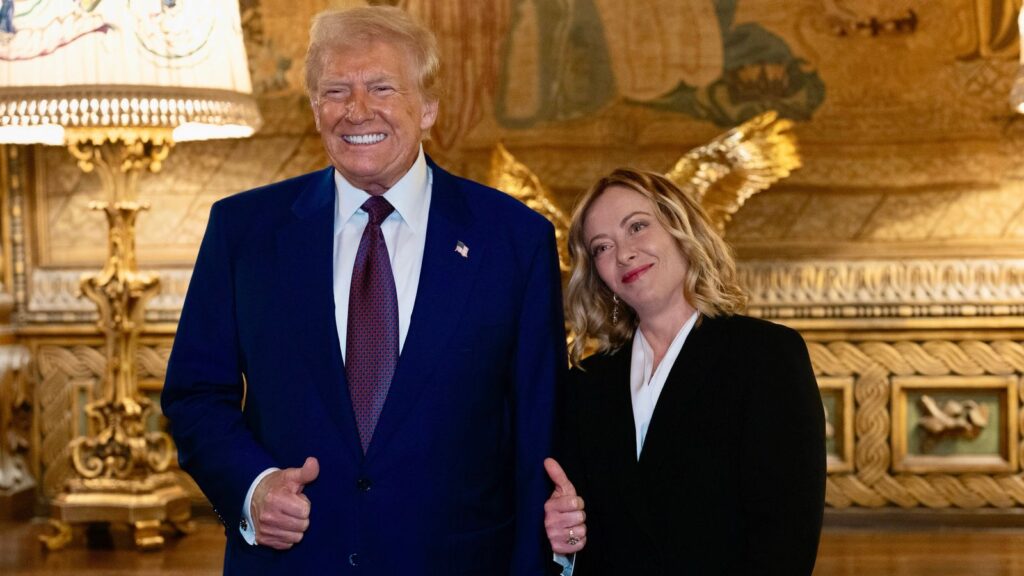Giorgia Meloni, known for her assertive leadership style, now finds herself in a new role as Italy’s prime minister, tasked with navigating the strained relations between Europe and America. The discord between the two regions has been exacerbated by President Donald Trump’s imposition of tariffs on the European Union and his disparaging remarks about the EU. Furthermore, concerns have arisen over Trump’s perceived lukewarm commitment to NATO and his clandestine discussions with Russia regarding Ukraine, leading to a sense of unease across Europe.
As the only world leader to attend Trump’s inauguration and a proponent of strong transatlantic ties, Meloni enters the fray as a potential mediator. While she shares some similarities with Trump in terms of right-wing populism and anti-migration sentiment, Meloni distinguishes herself by displaying a more adaptive approach to diplomacy. Despite her efforts to alleviate trade tensions, Meloni’s authority to negotiate new trade deals on behalf of the EU is limited, as ultimate decision-making rests with Ursula von der Leyen.
Although pressure mounts for Italy to increase purchases of American goods in exchange for its trade surplus with the US, Meloni is cautious about jeopardizing EU unity by pursuing individual deals with Washington. As Trump seeks to leverage Italy’s economic interests, other European nations closely observe Meloni’s diplomatic maneuvers, concerned about potential ramifications for the union.
In upcoming discussions with Trump, Meloni is likely to address defense spending, an area where Italy falls short of American expectations. Additionally, her stance on Ukraine, while historically supportive of Kyiv, has evolved to reflect a more nuanced perspective on European military capabilities and involvement in peacekeeping efforts. As Meloni navigates these complex diplomatic challenges, her decisions will not only impact Italy’s relationship with the US but also influence broader transatlantic dynamics.

